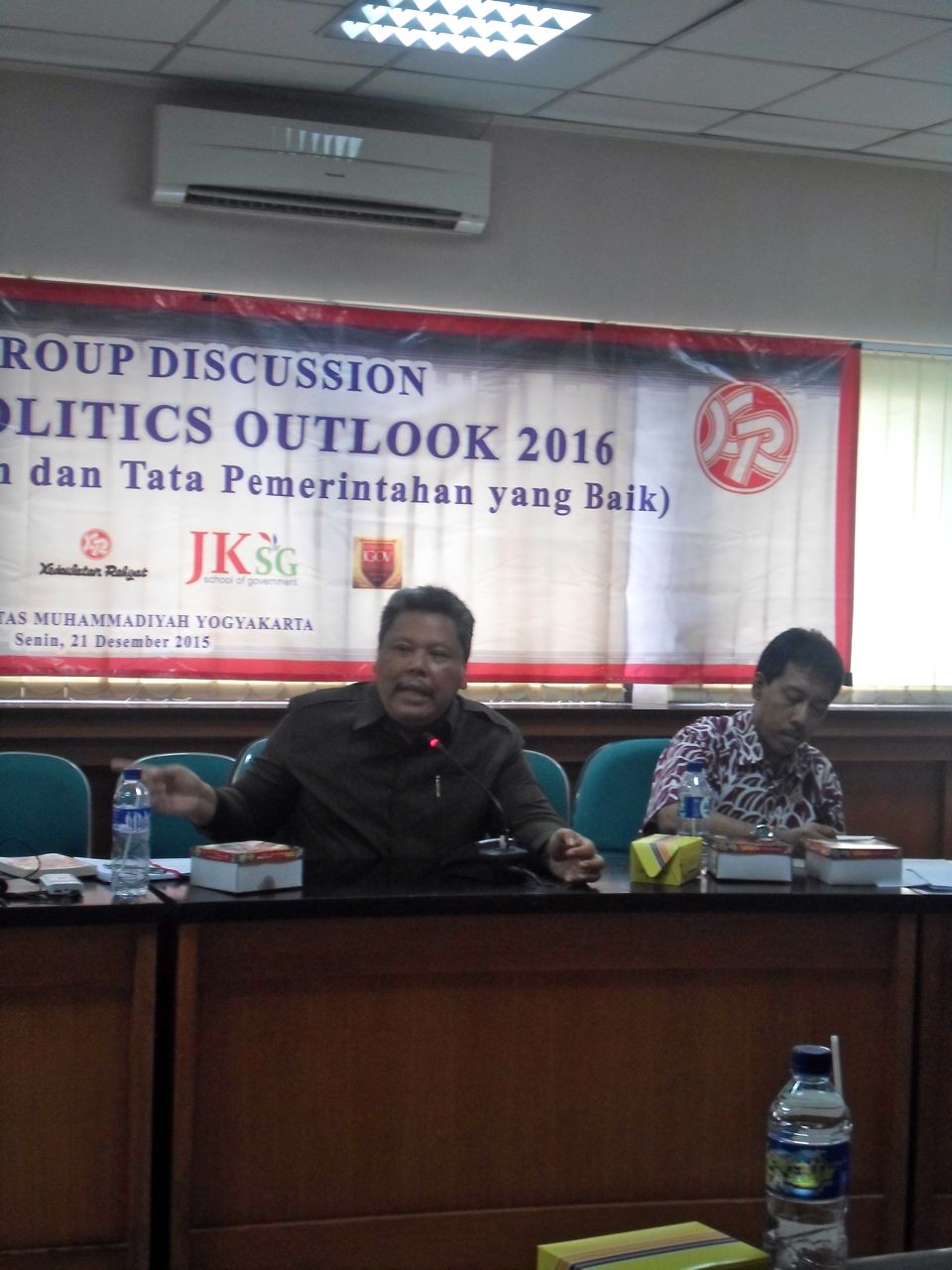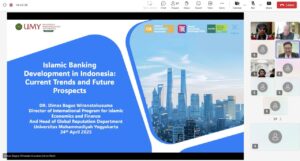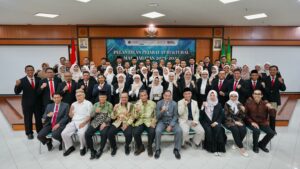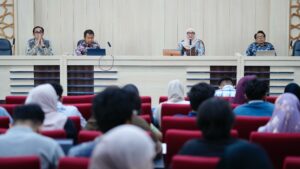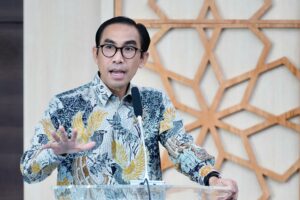Government of Indonesia, particularly local government, ought to improve the governance since local government is still confronting social, political, and economic issues and has corrupt governance. Even though general elections 2014 pledged the structural change of politics in Indonesia through elections of simultaneous regional and national elections, a lot of public issues remain to occur. The issues have brought negative impacts to public and the issues also lead to the loss of public trust to political officials, especially House of Representatives (DPR).
“Previous issues which have not been solved yet cause public distrust to government. In fact, Indonesia has been spending a lot of budget to the development of government, but the results are not as what have been expected,” stated Bamabng Eka Cahya Widodo, S.IP., M.Si., one of the speakers of Focus Group Discussion (FGD) of Indonesia Politics Outlook 2016. The FGD was conducted on Monday (21/12) at A.R. Fachruddin A, Floor 5, Universitas Muhammadiyah Yogyakarta (UMY). It was attended by Head of DPRD of DIY Dharma Setiawan, Deputy Chief of DPRD of DIY Arif Noor Hartanto, DPD of RI Afnan Hadikusumo, academicians, and practitioners.
Furthermore, a Governmental Study lecturer of UMY Dr. Titin Purwaningsih, S.IP., M.Si. reported that a survey of Indonesia government index revealed that poverty rate in cities was high. “Last year (2014, red.) Yogyakarta had the highest social gap index, counted for 6.5%, and the lowest was in Maluku, counted for 3%. The data showed that there was a high gap between Java and outside Java. Thus, government should take a look at the issue to enhance the performance of the government,” she maintained.
Titin inserted that the greater public participation, the higher the index of the governance, either bureaucracy or political officials. “Political officials become the main actors. They dominate 35% of governmental management, 27% of bureaucracy, 22% of civilians, and 16% of economic community,” she mentioned.
Titin argued that what to be notice in governance is dealing with issues of natural resource scarcity, long drought, flood, food availability, and corruption. “Government has to focus on issues of natural and social disaster like corruption,” she contended.
Moreover, Ane Permatasari, S.IP., M.Si., declared that government got difficulty in managing the social gaps like handling the economic gaps in DIY. “Per capita income of DIY is escalating, yet the economic gap is also increasing. It showed that 4 trillion rupiahs can be used to reduce the poverty, counted for 0.08%,” Ane informed.
Ane also reported that issues which have ensued since 2000 are dealing with women and children. Politics frequently discusses contemporary instead of the future. For instance, a regional regulation of women and children dealing with exclusive breast feeding (ASI) has not been implemented yet. “It impacts on the great malnutrition rate. The greatest malnutrition in DIY is in Tempel, Sleaman. It should become caution that the government does not only make law and does not care of the implementation, but the government also protects the women and children,” she criticized.
The other issue in DIY is the significant rate of divorce. “There was an amount of violence in divorce. Besides, dropout, early-age marriage, and juvenile delinquency also have high rate. Based on psychological research, the number of children smoking due to their parents is also many. Indeed, there is a five-year old child smokes,” Ane stated. She, then, expected the FGD could contribute to solving the issues happening in Indonesia, particularly DIY.
